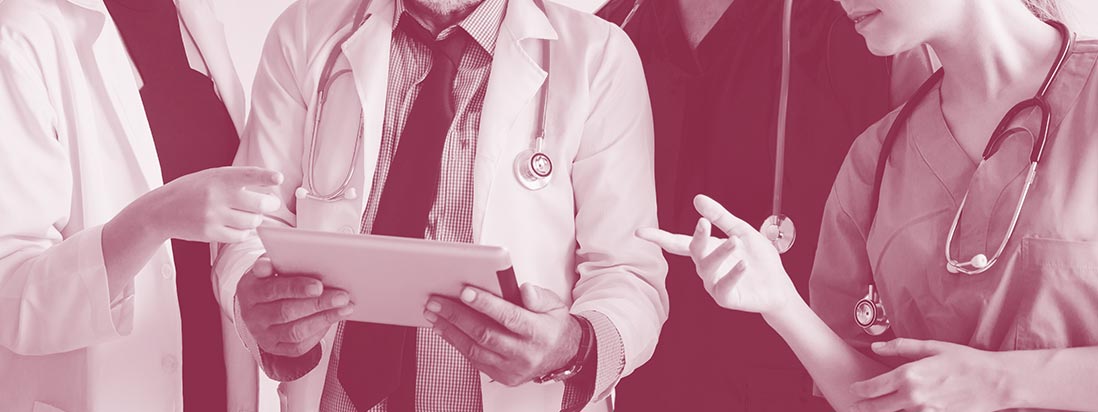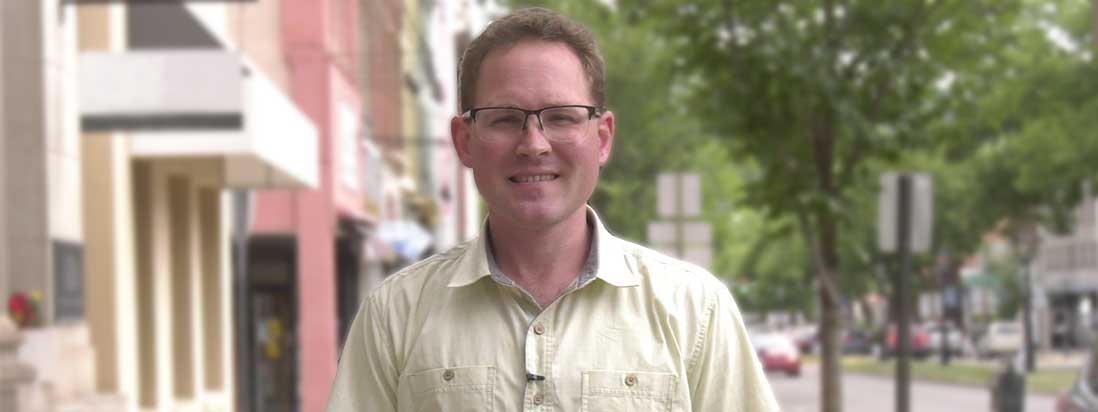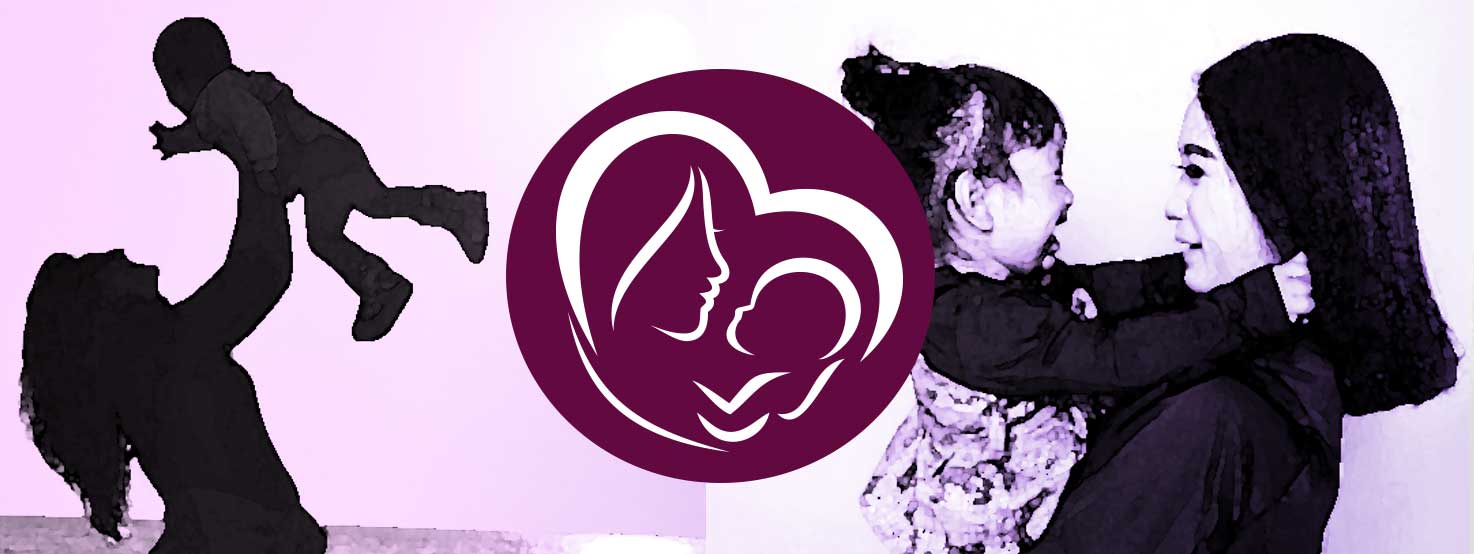
A Monthly Breast Self-Exam Could Save Your Life
When it comes to beating breast cancer, catching it early makes a big difference—yet many people skip one simple screening that could save their life: the breast self-exam.
No two people or their breasts are the same. A breast self-exam helps you learn your breasts’ unique characteristics—and knowing what’s normal for you helps you spot potential problems early.
If you have a menstrual cycle, examine your breasts at the same time each cycle, preferably just after your period when your breasts are not as dense. If you don’t have a cycle, pick the same time each month. Through routine exams, you’ll learn what is normal for you.
How to complete a breast self-exam:
- Place your right arm behind your head
- Using your left hand, gently move your fingertips around your right breast in small, circular motions; make sure to feel your entire breast area and into your armpit
- As you continue circling, move from light to medium pressure and finally to firm pressure. Does anything feel sore, lumpy, or unusual?
- In a mirror, look for any dimpling, rashes, or pitting in your breasts
- Squeeze the nipple and check for discharge
- Repeat these steps for your left breast using your right hand, with your left arm positioned behind your head
If you aren’t sure you are doing the self-exam correctly, ask your healthcare provider to perform a breast exam on you, so you can learn the technique firsthand and feel confident performing the exam on your own. Your Laurel Health Center provider can answer any questions you may have about what to watch for and how to check yourself at home.
If you notice anything unusual, don’t wait—call your healthcare provider and get checked! While Coronavirus COVID-19 has necessitated postponing gatherings and events, one thing you shouldn’t postpone is potentially life-saving care. Don’t put off getting a lump checked; the Laurel Health Centers have rigorous safety measures in place to see patients safely throughout the pandemic and beyond. To learn more about the steps we take to keep you safe, visit laurelhc.org.
When should I start self-exams? You should begin monthly breast self-exams in your twenties, but it’s never too late to start! Routinely examining your breasts will help you learn what is normal for you. Knowing what’s normal for your breasts and checking that each month helps you and your provider stay on top of any changes much sooner than solely relying on an annual mammogram.
Make sure to talk to your family doctor if you have any questions or concerns about completing your breast self-exam or with your findings. We’re here to help!
When to see a doctor:
It’s normal for your breasts change slightly during your cycle and as you age, but if you experience any of the following changes, make an appointment with your family doctor for further examination:
- Discharge from your nipple(s)
- Lump(s) or thickening breast tissue that does not shift during your menstrual cycle
- Changes in the shape, texture, or size of your breasts
- Changes in the appearance of the skin or nipples
- Discovering any portion of your breast that feels different than it did at this same time during your previous monthly self-exam
While these changes can be the result of benign cysts or non-cancerous tumors called fibroadenomas, you should always have them checked out. To determine the cause and type of lump, your doctor may order imaging like an ultrasound or mammogram and may request a biopsy.
How can I know my breast cancer risks? There are many factors that go into determining your overall risk of developing breast cancer, including your age, gender, race, pregnancy, breastfeeding, activity levels, alcohol consumption, and genetics. One of the most important ways to determine your personal risk is to discuss your family history with your doctor. If possible, try to determine who has had breast cancer within the last two to three generations of your family tree and his or her age at the time of diagnosis. Remember, both men and women can be diagnosed with breast cancer.
Promoting good breast health In addition to regular breast self-exams, you can stay on top of your breast health by eating well, exercising, quitting tobacco, and maintaining a healthy weight. Eat a diet high in fiber, vegetables, and fruit, lower your fat and sugar intake, and aim for at least 20 minutes of exercise daily.
Remember, you are the best advocate for your health! By learning what’s normal for you and your breasts, understanding your personal risk for breast cancer, living a healthy lifestyle, and keeping up with your breast health screenings, you are giving yourself your best chance at good breast health.
If you are due for a breast exam, have a concern about a change in your breast, or would like to discuss your personal breast cancer risks, make an appointment with the Laurel Health Centers at 1-833-LAURELHC (1-833-528-7354) or visit laurelhc.org for more information. All Laurel Health locations offer both onsite in-person appointments and telemedicine visits by phone or video chat to meet your personal care needs.
Dr. Lara Jaussi is a family medicine physician at Blossburg Laurel Health Center specializing in women’s health, pediatrics, and primary care; she is accepting patients at (570) 638-2174. Dr. Jaussi earned her medical degree from Lake Erie College of Medicine at Seton Hall in Greensburg, Pa and completed her residency at the Williamsport Family Medicine Residency Program. She also holds a master’s degree in biological sciences from Drexel University College of Medicine in Philadelphia.
Credits:
Writing: Lara Jaussi, DO /
Family Medicine Physician /
Laurel Health Centers
Produced by Vogt Media
Home Page Sponsors: Laurel Health Centers























































